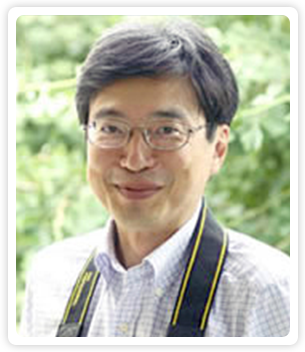Message from the Dean

Dean Graduate School of Science,
Kanagawa University
Professor Kazuhito Inoue
Established in 1993, the Graduate School of Science, Kanagawa University built upon the foundation of the undergraduate Faculty of Science with degree programs initially in three courses: Information Sciences, Chemistry, and Biological Sciences. It will soon be entering its 25th year. Over that time, it has conferred a combined total of 755 master’s degrees, 35 course doctoral degrees, and 12 thesis doctoral degrees. In 2012, Kanagawa University’s Faculty of Science inaugurated a new Department of Mathematics and Physics, and in March 2016, that department turned out its first crop of fresh graduates. In April 2016, the Graduate School of Science accordingly moved to develop a more exhaustive program of study by reorganizing its three courses into a single Course of Science with five Divisions in Mathematics, Physics, Information Sciences, Chemistry, and Biological Sciences ー and developing a new course curriculum that consists of the basic and common core subjects of the Course of Science and more advanced subjects in each Division. Today, the Graduate School of Science has a combined total of 49 faculty members providing instruction in its five Divisions. It has set enrollment quotas at 59 master’s students and three doctoral course students, and on that basis currently provides instruction and research training to approximately 100 students. In parallel with these organizational changes, the School also applied for and received approval to begin offering a new master’s-level course that helps students obtain an advanced certificate for teaching mathematics and science in middle schools and high schools.
Our new program of study is designed to equip students with a solid foundation of core scientific knowledge together with advanced knowledge in the covered Divisions, each of which represents a field in the natural sciences that has demonstrated breathtaking strides in recent years. Furthermore, it has the aim of cultivating individuals with the ability to apply this knowledge to the solution of problems and challenges within the fields of science and technology, and to pioneer discoveries and inventive ideas that will lead to new innovations in technology. Rather than having students cram advanced knowledge of particular subjects into their heads, we believe it more important that they develop and be able to effectively utilize a well-rounded base of core knowledge as well as apply it to challenges in a variety of fields. We yearn to cultivate individuals with the ability to view complex, difficult problems in terms of many smaller, more readily solvable problems and arrive at solutions through a repeated process of trial and error. To that end, our program of study builds around and extends upon a foundation of core knowledge and training that nurtures problem-solving skills through practice and research. An individualized approach to guidance and education is its single biggest feature. Each student receives individualized guidance and instruction, in particular, through special research aimed at learning and advancing methods to utilize core knowledge gained in lectures, and through special exercises that help with the comprehension of research papers in advanced subjects. To further enhance our program of education and research, since the 2009 academic year we have instituted a multifaceted instructional framework under which all students prepare research plans at the start of the academic year and are assigned research advisors in line with their plans. Additionally, we have instituted a program that allows fourth-year undergraduate students to take master’s-level lecture courses, thus ensuring that they will be prepared to focus more intensively on academic research after they enroll in graduate school.
The Graduate School of Science has endeavored to create an environment that both stimulates education and research activity and facilitates international exchange. In March 2005, the Department of Chemistry of the Faculty of Science of Kanagawa University entered into an academic exchange agreement with the Department of Chemistry of National Taiwan University. Under that arrangement, in January 2006 the first international symposium with National Taiwan University was held at Kanagawa University, led by our Course of Chemistry’s faculty members. In later years, faculty members from other courses including the Course of Applied Chemistry of the Graduate School of Engineering have become involved. Additionally, starting with the fourth international symposium in the 2008 academic year, graduate students also have been invited to participate. To date, the two universities have cohosted this international symposium 11 times altogether. As one outgrowth of that track record, National Taiwan University and Kanagawa University entered into a university-wide academic exchange agreement in April 2011. We intend to sustain and expand on this program of exchange and will pursue similar academic exchange arrangements with universities in other countries in the years ahead.
The Graduate School of Science has also expanded its programs for interdisciplinary research. In the 2012 and 2013 academic years, it won approval for two MEXT (Ministry of Education, Culture, Sports, Science and Technology)-Supported Projects for the Development of a Foundation for Strategic Research at Private Universities. Both were pursued in collaboration with the Graduate School of Engineering on the Yokohama campus and were respectively titled “Development of Technology and Research Center for Creating Green/Life Innovation Based on Application of Sunlight” and “Creation of High-Performance Materials through Fusion of Highly Ordered Inorganic Nanostructures and Precision-Structure Organic Polymers.” The research teams for these projects each consisted of a total of nine faculty members from the two graduate schools combined. These projects have served as a core base of support for heightened research activity, promoted research collaboration and exchange not only between faculty members directly involved but also with other Kanagawa University graduate school programs as well as outside research institutes, and aided preparations for the approval of future, large-scale projects.
This is how far our Graduate School of Science has come, and we are determined to ensure that it continues to advance and build on its track record of achievement in the years ahead. I humbly request your continued understanding and support as we move forward with that quest.
